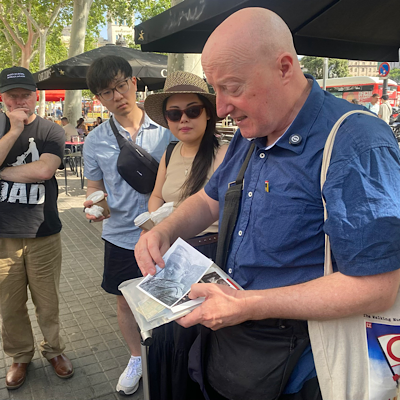Episode 50: Remembering the Spanish Civil War in Barcelona
Spain’s Pacto del Olvido (Pact of Forgetting) was once regarded as the gold standard for how to achieve a bloodless transition from dictatorship to democracy. There were no prosecutions for the crimes committed during the civil war and the nearly four decades of Franco’s rule. This was the agreement reached after the death of dictator…
Read More










